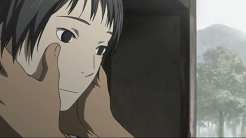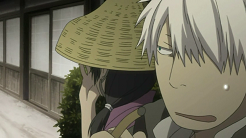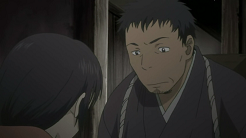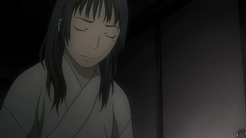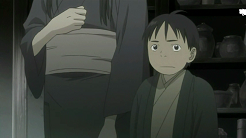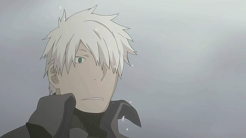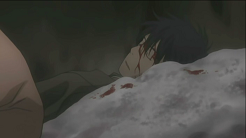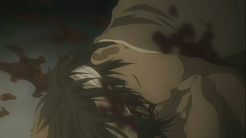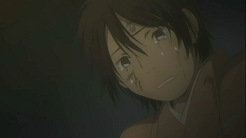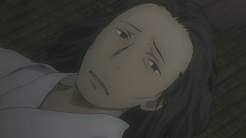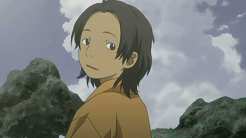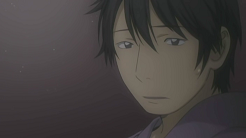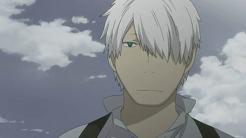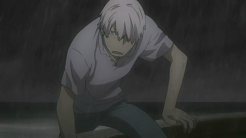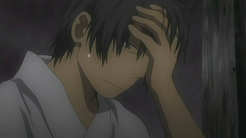Now this was such a beautiful episode. We often see Mushi portrayed as parasites. In fact, they are pretty much based on the insects and viruses of their world. There probably are enough real viruses and insects living in the Mushishi world, but they just aren’t the focus of the series. Anyway, what they did here was highlight the duality of these little critters: they have both their positives and negatives. This episode really focused on the positives, while again not ignoring the negatives.
The woman who is cursed to keep all of the moisture inside her body. It killed a few people due to unfortunate circumstances (again, nobody is at fault here), however it also brings so much joy to the people when she arrives. What made this episode work so well is how well this series characterizes just about everyone: even the minor characters feel real. I mean, have you looked at the animation for this series? EVERYTHING IS SMOOTH AND LIFELIKE. I cannot recall a TV-series that has such consistently detailed animation for characters, and this series can pull it off because it’s not an action series: budget doesn’t need to be spent on elaborate action scenes, so instead it can go into the detail.
Mushishi really is a mature series like no other. Most series when they tell a story, resort to black and whites: there are clear heroes and clear villains, and even when the villains have reasons for their actions, their reasoning is often crazy in some way to the point where you can’t really hold a nuanced conversation with them. Here, everything has multiple sides to it, and it’s done in a really cool way.
And yeah, pretty much now that I’ve seen the preview of the upcoming summer season: I’m currently 95% sure that Mushishi is going to end up as the best show of 2014. There never has been a series that stood so far above all of the others in all other years that I’ve been blogging. It’s just consistently fantastic and detailed and in seven episodes I have yet to spot a weak moment. This show is just THAT special, and it justifies a second season really well: every episode continues to build upon the lore of the mushi, and we still see new stuff.








